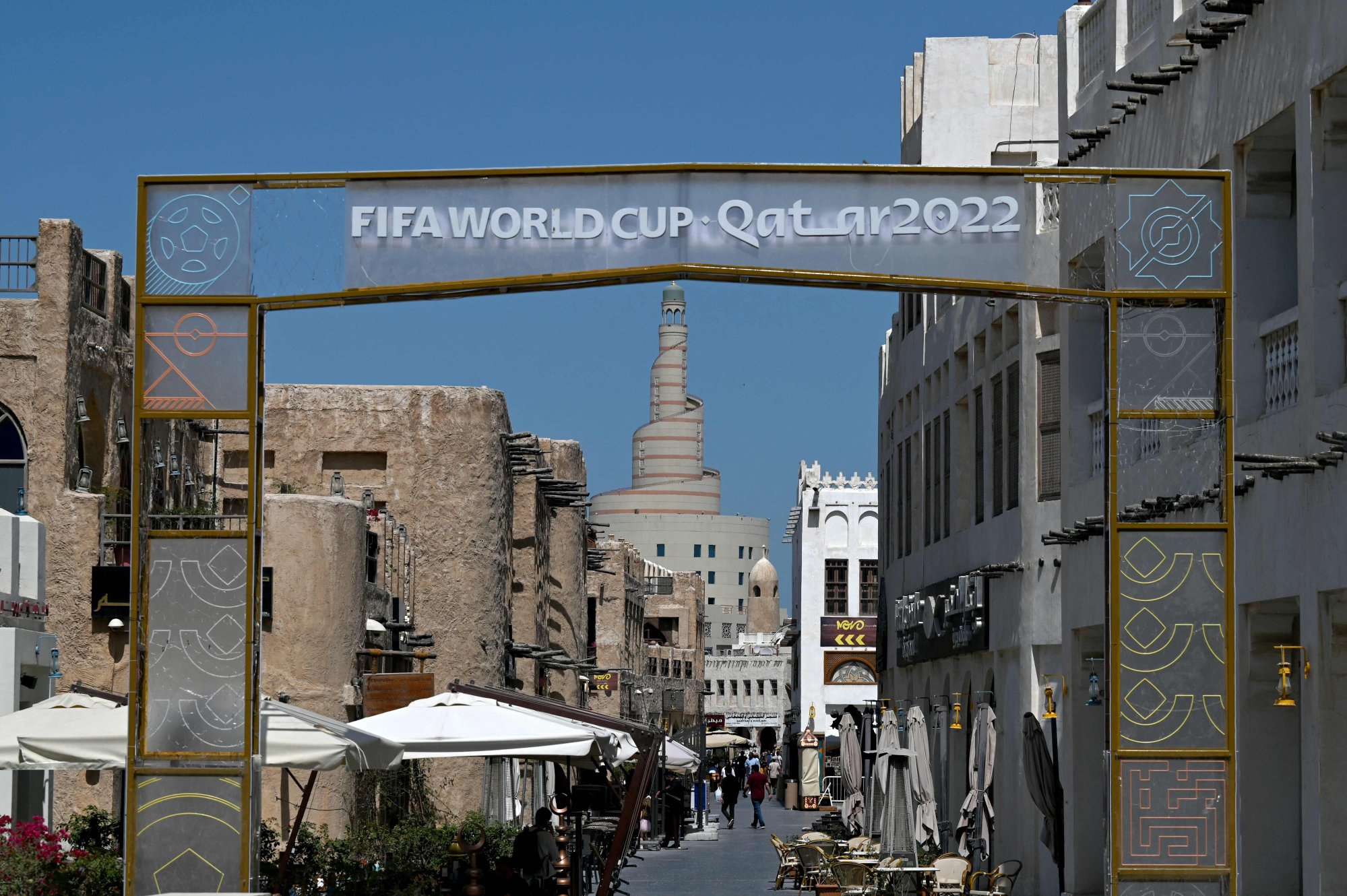
Wyndham to investigate as its Qatari Fifa World Cup hotel bans gay guests
- European Broadcasters posing as gay newlyweds reported the Wyndham Grand Regency was among three hotels that would not allow them to book a room
- Activists have raised concern about the safety of LGBTQ+ people planning to attend the World Cup in November. Qatari laws deem homosexuality illegal
Wyndham Hotels & Resorts Inc. said it would investigate after its Doha hotel said gay tourists weren’t welcome, heightening concerns over the treatment of LGBTQ+ people who attend the soccer World Cup in Qatar later this year.
Journalists from state Broadcasters in Denmark, Sweden and Norway posed as gay newlyweds planning their honeymoon when attempting to book a room at 69 hotels on FIFA’s official list of recommended providers. Norway’s NRK reported the Wyndham Grand Regency was among three that wouldn’t allow them to book a room, citing Qatari laws that deem homosexuality illegal.
Parsippany, New Jersey-based Wyndham Hotels said in an emailed statement that the company would “look into this immediately as the actions taken do not reflect of our core values including being inclusive.” It added that “being welcoming and inclusive to all is simply part of who we are and how we do business,” and touted a perfect score on Human Rights Campaign’s Corporate Equality Index.

The Torch Doha and Magnum Hotel & Suites Westbay also declined to host the fictitious couple, NRK said. Torch Doha later told the broadcaster it would respect policies set out by World Cup organisers. Neither hotel responded to Bloomberg requests for comment outside normal business hours.
Activists have raised concern about the safety of LGBTQ+ people planning to attend the World Cup which begins in November, the biggest global sporting event ever held in the Middle East.
The local organising committee has pledged Qatar will welcome visitors of all sexual orientations, as long as they abide by a general rule against displays of public affection that also applies to heterosexual couples.
In a document on sourcing policies, the committee also stipulates that businesses it works with mustn’t discriminate against customers on the basis of sexual orientation. However, a government official in charge of security for the event told the Associated Press last month that rainbow flags could be taken away from fans to protect them from attack.
The trio of Swedish, Danish and Norwegian reporters called or emailed hotels saying they’d heard there could be challenges for gay people in Qatar and asking if they’d be welcome to stay at each property.
Thirty-three had no objection, while 20 properties responded that it was acceptable so long as the couple did not exhibit any behaviour that would identify them as gay men.
Qatar’s faced scathing criticism about its record on human rights ever since winning the rights to host the World Cup in 2010. Though activists have condemned policies that limit rights of women and LGBTQ+ people, most of the uproar has focused on the treatment of low-income migrant workers.
Hospitality companies haven’t been immune from such scrutiny. In a 2021 survey of 19 hotel brands operating in Qatar, the UK-based Business & Human Rights Resource Centre found a “widespread lack of action” to prevent and exclude forced labour, though it praised increasing engagement and attention to the issue from some of those it contacted. The organisation said Wyndham did not respond to its request for information in last year’s survey.
While hotel brands like Wyndham market thousands of properties across the world, they often don’t own individual hotels or directly employ most workers, leading to policies and standards that differ across locations.

